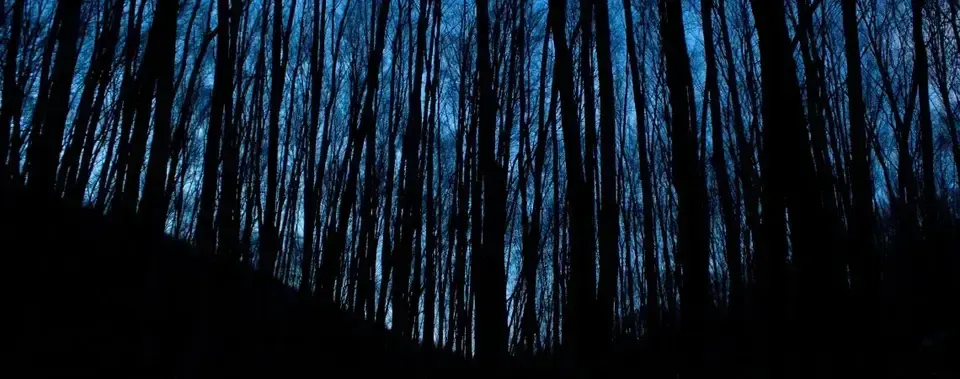
M.L. BLACKBIRD

08 APRIL 2019
HORROR VS TERROR: DIFFERENT WAYS TO SCARE
In this article we will be discovering the difference of horror vs terror through the definition that writers have been giving to both over time.

These last few days I’ve found myself explaining the difference between Horror and Terror many times to multiple people - so I guess, in a way, I am writing this article to stop repeating myself. So, let’s get into this horror vs terror business!
Whereas both terms exist to define fear, the two have different and very specific meanings.
Ann Radcliffe was the first to define them in her essay “On the supernatural in poetry”. Despite the two are nearly synonyms, Ann Radcliffe argues there is a deep distinction between the terms Terror and Horror. In her own words: “Terror and horror are so far opposite, that the first expands the soul, and awakens the faculties to a high degree of life; the other contracts, freezes, and nearly annihilates them”.
Terror and horror are so far opposite, that the first expands the soul, and awakens the faculties to a high degree of life; the other contracts, freezes, and nearly annihilates them.
-Ann Radcliffe
Can we be more precise here?
I guess the easiest way to distinguish the two is that Terror is the feeling that something bad, evil or wrong is about to happen, whereas Horror is the shock and revulsion that we feel when such wrong has happened.
As a dark fantasy writer myself, my ambition is to drive fear through terror. Why so? Because, given the missing payout of a violent or gory act, terror tends to stick with the reader and ultimately makes my writing more memorable. Using Stephen King words: “I recognize terror as the finest emotion… and so I will try to terrorize the reader. But if I find I cannot terrify him/her, I will try to horrify; and if I find I cannot horrify, I’ll go for the gross-out. I’m not proud”.
If terror can lead to horror, the reverse is harder. Horror, in fact, gives readers the payoff they want after the action has happened. Terror instead needs such payoff not to happen and the reader to keep staying in a dimension of ambiguity where something wrong or bad might be happening at any given time.
Terror is usually harder to achieve than horror and this is why the latter tends to be dismissed as cheap. It is worth to use both carefully, though. In fact, even terror can be tiring if kept for too much time as, by its own nature, it prevents the readers from obtaining the payoff their nerves desire.
I recognize terror as the finest emotion… and so I will try to terrorize the reader. But if I find I cannot terrify him/her, I will try to horrify; and if I find I cannot horrify, I’ll go for the gross-out. I’m not proud.
-Stephen King
A brief example (skip if you are sensible to gore)
As an example, terror is what you will feeling when, coming back home, you find the lights off and closed windows. Your wife was supposed to stay home today and she hates staying in a dark house - it is not like her to leave the blinds down. Someone has taken the milk out of the fridge. The drawer in the kitchen is open and a knife is missing.
Horror is the sensation you feel when you reach the bedroom. A man is sitting on the side of your bridal bed drinking milk from a glass with the knife still in his hands, dirty of blood. Your wife is laying on the floor at his feet. She is dead. He has killed her.
When you feel the sticky sensation of your shoes over her blood and you see her petrified, pale-bluish face. Well, at that point, you’ll be grossed out.
Sublime and Uncanny
Radcliffe believes that terror drives us towards the sublime (or, at least, a form of it). The sublime is a feeling our mind experiences when confronted with something of such greatness it cannot comprehend. This can be something of extreme beauty (the sun setting over the lake we have been watching from the top of a mountain) but also something of great darkness and dread (the eerie sound of the sea and the wind on an desert island where we’ve just discovered we are stuck with an assassin planning to kill us).
Hill House, not sane, stood by itself against its hills, holding darkness within; it had stood so for eighty years and might stand for eighty more. Within, walls continued upright, bricks met neatly, floors were firm, and doors were sensibly shut; silence lay steadily against the wood and stone of Hill House, and whatever walked there, walked alone.
-Shirley Jackson, The Haunting of Hill House
Freud talks to us of the Uncanny. According to the philosopher, we feel uncanny whenever we break the veil separating life from death or dream from reality. In this sense, the uncanny is not dissimilar from terror as it relies on the doubt that something wrong might be happening rather than the fact that it has happened. Freud connects the Uncanny with the concept of “not belonging to the house”. In essence, the sensation that something out of the ordinary might be hiding behind an ordinary situation or place. In a way, uncanny and terror are similar as both rely on ambiguity to produce fear.
The ability to distinguish horror and terror should help you drive fear in your readers, so I hope this article on Horror vs Terror is going to be useful in your writing adventures.
Sources: ENGL Virginia